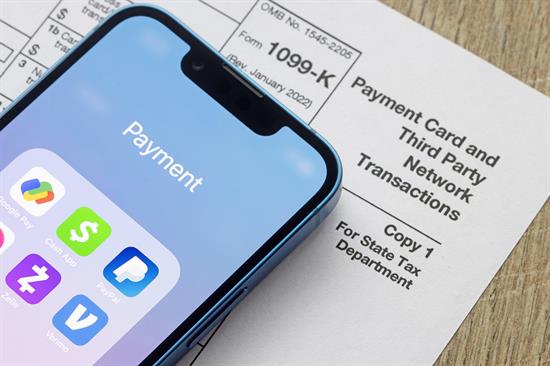- Meet Ralph
- Current Issues
- Serving You
- Emergency Preparedness
- Tele-Town Hall Signup
- Help with a Federal Agency
- Expedited Passports
- Visiting Washington
- Meeting Request
- Service Academy Nomination
- Congressional Commendation
- Appropriations Request
- Flag Request
- Federal Grants
- Congressional App Challenge
- Congressional Art Competition
- Surplus Books
- Internships
- Kids Page
- Media
- Contact
Blog
A Major Burden on Many Innocent Taxpayers
Washington, D.C.,
November 30, 2022
If you use Venmo, PayPal, Cash App, or any other platform used to send people money electronically, this post is for you. By the end of January, you will likely receive an IRS 1099-K form if someone has sent you more than $600 during the 2022 tax year using one of these “third-party facilitators” like Venmo, PayPal, etc. For those who aren’t aware, a 1099-K is essentially a payment record. It serves as an official notification to you, the IRS, and your state’s revenue department that you have received a certain amount of money from the person who sent you that money. For context, it used to take more than $20,000 covering at least 200 transactions to before a 1099-K form was sent to the IRS and state. But now thanks to the Democrats and their so-called “American Rescue Plan,” that reporting threshold was lowered to just a single transaction of more than $600. Remember, liberals were under pressure to find ways to pay for at least part of their massive, uncontrollable spending. And one of the areas they focused on was extracting more money from you, the taxpayer. Hence things like this lower 1099-K threshold and Biden’s 87,000 new IRS agents. Here’s how this goes off the rails… Perhaps your roommate used Venmo to send you his share of the rent. You would ~not~ owe income taxes on those payments, but of course Venmo isn’t responsible for making that determination. So Venmo will send you a 1099-K on behalf of your roommate, and then it becomes your responsibility – your burden – to demonstrate to the IRS and your state taxing authorities why his payments to you weren’t taxable. It’s obnoxious. Or let’s say you sold a piece of antique furniture, and the buyer paid you through PayPal. If that transaction was more than $600, PayPal is going to issue a 1099-K on behalf of the buyer, and send that information to the IRS and your state. That paves the road for the IRS and state (separately) to demand to know how much you originally paid for that piece of furniture, to see what tax revenue they might get from that transaction. PayPal, for example, admits the burden this is going to cause! Directly from their website: “While banks and payment service providers, like PayPal and Venmo, are required by the IRS to send customers a Form-1099K if they meet the $600 threshold amount, certain amounts may be included on the form that are generally excluded from gross income and therefore are not subject to income tax.” Bottom line is that this is just another overreach by the federal government, and it’s going to be a major burden on many innocent taxpayers. Not to mention there are multiple privacy and implementation concerns over this. Yesterday I led 33 other Members in the House of Representatives in a letter to the Acting IRS Commissioner concerning this issue. You can find a copy of that letter using the link here. |

